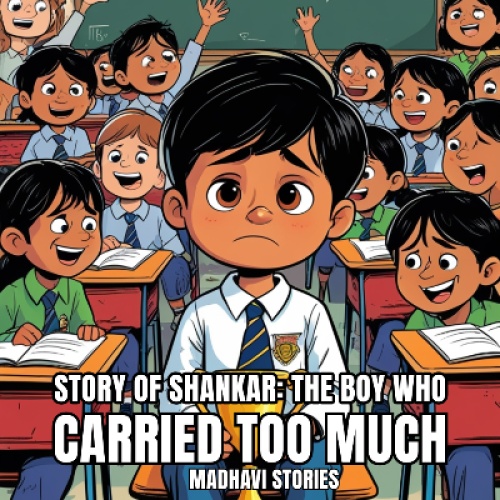From a very young age, it was clear that Shankar was a talented child. His parents were proud and wanted everyone to see how special he was. They didn't want to wait for school to start his learning. Instead, they began teaching him Tamil and English at home - doing everything they could to help him read and write quickly. While other kids learned letters after joining school, Shankar was already ahead of the curve.
First, they taught him to speak. Then came words. Soon, his speech was clear, crisp, and filled with respect. When he spoke, everyone listened in awe. His parents introduced him to Thirukkural and slokas, and by the age of three, Shankar had memorized all 1,330 Thirukkural verses. He could recite them flawlessly, even within a specific time limit. His incredible achievement got him into the Guinness World Records, and the entire village celebrated with pride and admiration.
His parents were overjoyed. But they weren't ready to stop there. They kept encouraging him to aim for more records, training him hard every day. And guess what? Shankar didn't disappoint. He broke several records and won many awards. But while he kept achieving, a part of him began to feel something was missing.
You see, Shankar wanted to play with the other kids. He longed to run around, laugh, and enjoy the little joys of childhood. But his parents didn't allow it. They told him, "You can play later, after you study." So, instead of playtime, Shankar had more practice sessions. Slowly, he began feeling left out.
When he finally joined school in his cute uniform, everyone already knew who he was - the genius boy with a Guinness record. His teachers praised him, and his parents proudly spoke of his achievements to anyone who would listen. But that praise had an unexpected side effect.
The other kids started feeling jealous. They couldn't relate to Shankar and avoided him. "He's too smart," they'd say. Soon, Shankar was all alone. He watched his classmates laugh and joke with one another, but no one invited him to join. The loneliness grew heavy.
While everyone said, "Be like Shankar," Shankar silently wished he could just be a regular kid.
At home, the pressure continued. At school, expectations piled up. And to top it off, the school appointed a special teacher just for him. This teacher trained him for more records, more awards, and more achievements. Whenever other kids played during lunch breaks, Shankar had extra classes or practice.
All this pressure became too much. One day, he snapped. He stopped meeting his special teacher, shut himself in his room, and refused to study. His parents were confused and angry. "What's wrong with him?" they asked. They didn't know the pain their child was silently carrying.
Shankar began shouting at his parents, "Why are you doing this to me? I never asked to break records! What do I get out of all this?" He refused to eat, refused to talk, and avoided everyone.
Soon, his emotional outburst grew into anger. He became moody and withdrawn. His parents, now worried, called relatives and elders to help. But nothing worked. Finally, they decided to enroll him in a boarding school, thinking the change might help.
At the new school, Shankar found some peace. He started enjoying his lessons and daily routine. He could finally be himself. Though his parents tried calling him, he ignored their calls. He didn't want to see them - not yet.
One teacher at the new school noticed Shankar's pain. They sat with him and spoke gently. Bit by bit, Shankar opened up and shared everything. The teacher then met his parents and said, "This pressure you put on him, it's too much. He's just a child. Let him live his childhood."
The parents were shocked. "But we thought we were helping his future," they said. The teacher replied, "There's a big difference between encouraging a passion and forcing one. You created your dreams through him. But did you ever ask what he wanted?"
It was a hard truth to hear. The teacher continued, "Let your son find his joy. Let him laugh, run, make friends, and discover life on his own terms. Childhood is a time for play, not pressure."
Whether it's studies, fashion, games, or art - every child deserves the freedom to follow their heart, not the weight of someone else's dreams. Shankar had all the achievements in the world, but what he needed most was something every child craves - a happy, carefree childhood.
And perhaps, that's the greatest achievement any child can truly own.
Moral of the Story:
Shankar's story reminds us that while talent and achievement are valuable, they should never come at the cost of a child's happiness, freedom, and emotional well-being. Childhood is meant to be a time of curiosity, laughter, friendship, and play - a foundation for becoming a balanced, joyful adult.
When children are burdened with expectations too early, they may succeed in the eyes of the world but silently suffer within. True parenting lies not in turning children into trophies, but in guiding them gently, allowing space for dreams to grow naturally. Let every child bloom in their own time and in their own way. Because in the end, a happy child is the most beautiful achievement of all.







